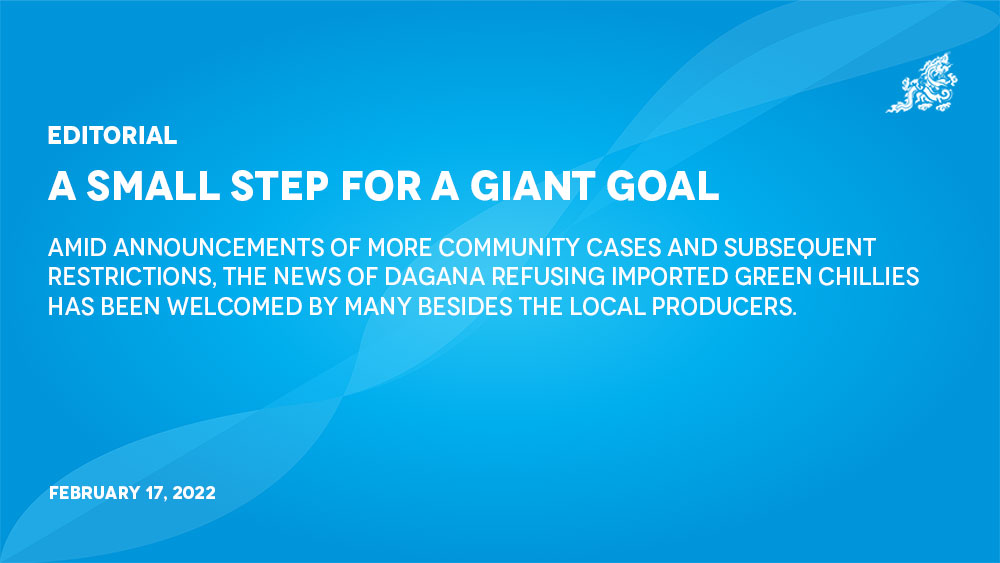Amid announcements of more community cases and subsequent restrictions, the news of Dagana refusing imported green chillies has been welcomed by many besides the local producers.
To support chilli growers, the dzongkhag administration discouraged the distribution of imported green chillies in the dzongkhag saying that it would undermine the efforts and confidence of producers.
The decision comes at a time when we continue to face a visible urban drift. Our town lights are getting brighter and, as a result, more fields are turning fallow. The young are leaving the farms and gathering in towns, increasingly to a jobless existence.
The issue of wild animals is also raising more concerns. Bhutan’s enlightened approach to wildlife needs to be preserved but we also need concrete solutions to the loss of hard-earned food grain to pests. If the reports that we are losing up to 30 percent of food grain to animals are correct, something obviously needs to be done.
The rising cost of essentials is another burden on the already burdened consumers. Unfortunately, price regulation in our market is poor and difficult. Our market is flooded with goods that have no fixed prices vegetables included.
We don’t doubt that improving our own food production is the only way out to tackle increasing food prices. But we have also been discussing that for decades. The pandemic in the past two years has only exposed our vulnerabilities. Although efforts are made, we are far from producing what we need.
The high cost of production is always high and that is one of our problems. Reviving the economy will not be possible if policies are not framed and implemented to address the existing problems and help in meeting our goals of self-reliance and food security.
The assumption that money will guarantee self-reliance is not a complete concept. A landlocked country such as ours cannot assume that relatively inexpensive food supplies will always be available for import.
Dagana is one of the few dzongkhags identified for the production of winter chilli and the agriculture ministry’s announcement last month to import chillies for three months, though well-intended, did not go well with the local producers. The ministry imported chillies to ensure availability, to stabilise prices, and to curb illegal imports.
In the past few years, the government has made huge investments in winter vegetables, including chilli production. Encouraged by the prospects, farmers in low-lying areas embraced winter cultivation in hordes.
While many have raised concerns about prices, more than a dozen dzongkhags have already instituted committees to monitor the price of commodities in the market.
Bhutan’s long-standing policy of balanced development requires that urbanisation cannot take place without a very high investment in agriculture to increase production through intensive mechanisation, use of new fertilisers, new plant strains. Food independence strengthens national independence.
Like the agriculture minister said, only if dzongkhags protect local food and nutrition security, national food and nutrition security can be accomplished. Dagana’s decision exhibits that local governments can devise interventions to boost local production and also the confidence of the farmers in government policy.


